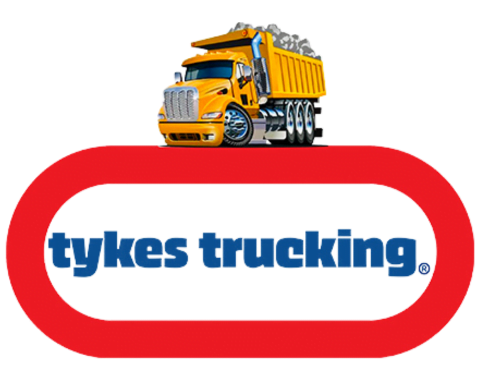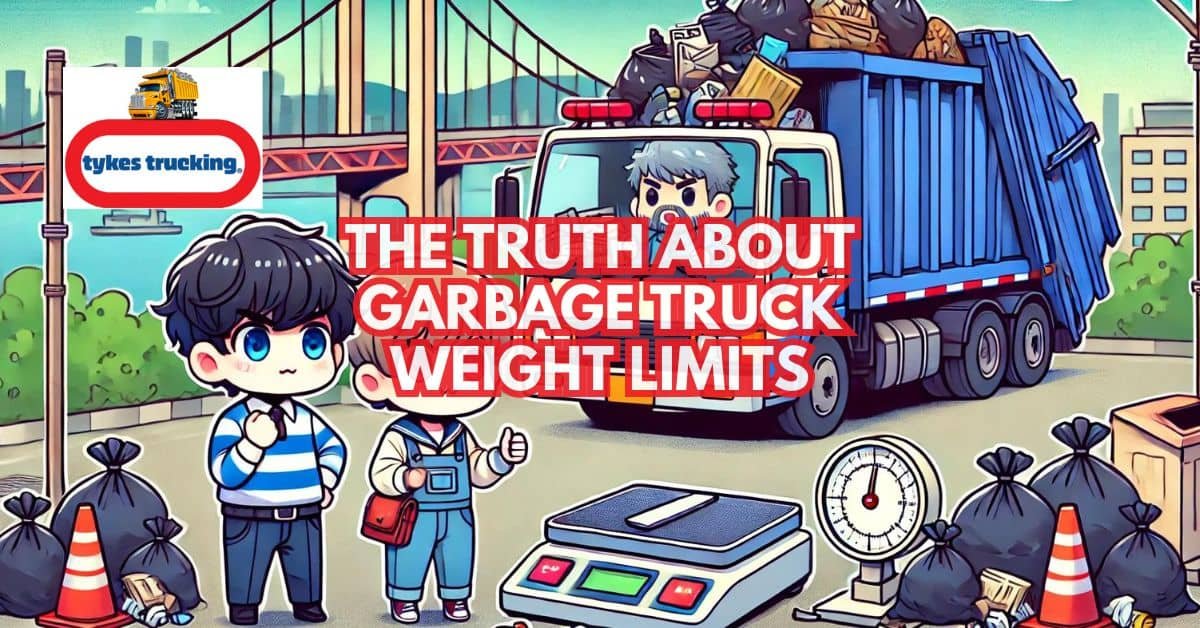Garbage trucks are essential for waste collection, but their weight must be carefully managed.
Weight limits are set to ensure these vehicles operate safely and efficiently.
Overloading a garbage truck can lead to mechanical failures, increased fuel consumption, and unsafe driving conditions.
By understanding and adhering to weight limits, waste management operations can avoid these issues.
Let’s explore the importance of not overloading garbage trucks and the benefits of following weight guidelines.
1. Safety on the Line: Why Weight Limits Matter
Weight limits are critical for the safety of garbage truck operators and other road users.
Overloaded trucks are harder to maneuver, increasing the risk of accidents.
Excess weight can also cause brake failure and tire blowouts, leading to dangerous situations.
Proper weight management ensures that garbage trucks can operate safely in various conditions.
Adhering to weight limits is a fundamental aspect of maintaining road safety and protecting lives.
🚚 Keeping It Rolling: Essential Garbage Truck Parts for Peak Performance
2. Don’t Overload the Bridge: Protecting Our Infrastructure
Bridges and roadways are designed to handle specific weight limits.
When garbage trucks exceed these limits, the extra stress can cause significant damage.
Over time, this leads to costly repairs and potential infrastructure failures.
Protecting our infrastructure means respecting the weight limits set for garbage trucks.
Ensuring these vehicles are not overloaded helps maintain the integrity of bridges and roads, avoiding unnecessary expenses.
🚚 Exploring the Green Team: A Comprehensive Look at Different Garbage Truck Types
3. Road Warriors, Not Ravagers: How Weight Limits Save Our Streets
Garbage trucks travel through many neighborhoods, and overloading them can wreak havoc on the streets.
Heavy loads can cause potholes and cracks, deteriorating road quality.
Weight limits help to minimize the wear and tear on roads, reducing maintenance costs.
By keeping garbage trucks within weight limits, we preserve the quality of our streets.
This benefits communities by maintaining smooth and safe road surfaces.
🚚 Size Matters: A Homeowner’s Guide to Garbage Truck Dimensions
4. Clean Trucks, Clean Air: The Environmental Impact of Weight Limits
Properly loaded garbage trucks contribute to a cleaner environment.
Overloaded trucks consume more fuel, leading to higher emissions of pollutants like carbon dioxide and nitrogen oxides.
These pollutants negatively impact air quality and contribute to climate change.
Adhering to weight limits ensures that garbage trucks operate efficiently, using less fuel and emitting fewer pollutants.
This not only protects the environment but also promotes public health by improving air quality.
🚚 Mastering Curbside Pickup: Everything About Garbage Truck Rear Loaders
5. Know the Law: Understanding Garbage Truck Weight Limits
Garbage truck weight limits are regulated by local and national laws.
These regulations are designed to ensure the safety and efficiency of waste collection operations.
Violating weight limits can result in fines, legal actions, and operational delays.
Understanding and complying with these laws is essential for waste management companies to avoid penalties and maintain smooth operations.
Keeping up-to-date with the latest regulations ensures that garbage trucks operate within legal parameters.
🚚 Inside the Compactor: Understanding How Garbage Trucks Manage Your Trash
6. Weighed Down? How Trucks Stay Compliant
Garbage trucks are equipped with various tools to monitor and manage their weight.
Onboard scales provide real-time weight measurements, helping drivers avoid overload.
Additionally, GPS and tracking systems can monitor routes and ensure weight distribution is balanced.
Regular maintenance and checks are also crucial for compliance.
By utilizing these technologies and practices, waste management companies can ensure their trucks stay within weight limits.
🚚 Maximizing Hauling Efficiency: Essential Tips for Using a 30-Foot Flatbed Trailer
7. The Cost of Overload: Fines and Penalties Explained
Overloading garbage trucks can lead to significant financial consequences.
Fines for exceeding weight limits can be substantial, impacting the budget of waste management companies.
In addition to fines, there are costs associated with increased wear and tear on trucks, leading to more frequent repairs and replacements.
Legal penalties and potential lawsuits can also arise from accidents caused by overloaded trucks.
Avoiding these costs by adhering to weight limits is essential for the financial health of waste management operations.
🚚 Chrome Upgrades: Essential Truck Accessories for Every Driver
8. Working Together: How Residents Can Help
Residents play a crucial role in preventing garbage truck overloads.
Proper waste sorting and reduction help keep the load manageable for collection trucks.
By recycling correctly and reducing overall waste, residents contribute to lighter, safer loads.
Community awareness programs can educate people on the importance of proper waste disposal.
Working together, residents and waste management services can ensure that garbage trucks remain within safe weight limits.
🚚 Keeping It Cool: A Reliable Guide to Refrigerated Trucking Services in Cainta
9. Tech to the Rescue: Innovative Tools for Weight Management
Technology has advanced to help manage garbage truck weight effectively.
Onboard scales provide accurate weight measurements, preventing overloads before they happen.
GPS and tracking systems ensure efficient route planning and a balanced weight distribution.
Innovations like smart waste bins can alert when they’re nearing capacity, aiding in load management.
These tools enhance compliance and improve the overall efficiency of waste collection operations.
🚚 Decoding Flatbed Truck Dimensions: Finding the Right Trailer Size
10. The Bigger Picture: Benefits of Responsible Waste Collection
Responsible waste collection involves more than just following weight limits.
It ensures safer roads, protected infrastructure, and a cleaner environment.
Proper weight management reduces fuel consumption and emissions, contributing to sustainability.
It also leads to lower maintenance costs for both garbage trucks and public roads.
Ultimately, responsible waste collection practices benefit the entire community by promoting safety, efficiency, and environmental health.
🚚 Customized for Success: How Custom Flatbed Trucks Can Enhance Your Business
💡 Conclusion
Adhering to garbage truck weight limits is crucial for multiple reasons.
It ensures the safety of operators and the public, protects infrastructure, and supports environmental sustainability.
Overloading trucks can lead to accidents, costly repairs, and increased emissions.
By understanding and respecting these limits, waste management operations can function smoothly and efficiently.
The collective effort to avoid overloading helps create a safer, cleaner, and more sustainable community.
😉 Our Services
Tykes Trucking Services offers reliable delivery of aggregates and professional hauling services.
Our team ensures timely and efficient transportation for all your needs.
For inquiries or to schedule a service, contact us at 09175435019, message us on our Facebook page, or use our website’s contact form.
Trust Tykes Trucking Services for dependable and top-quality hauling solutions.
Reach out today to see how we can assist you!

